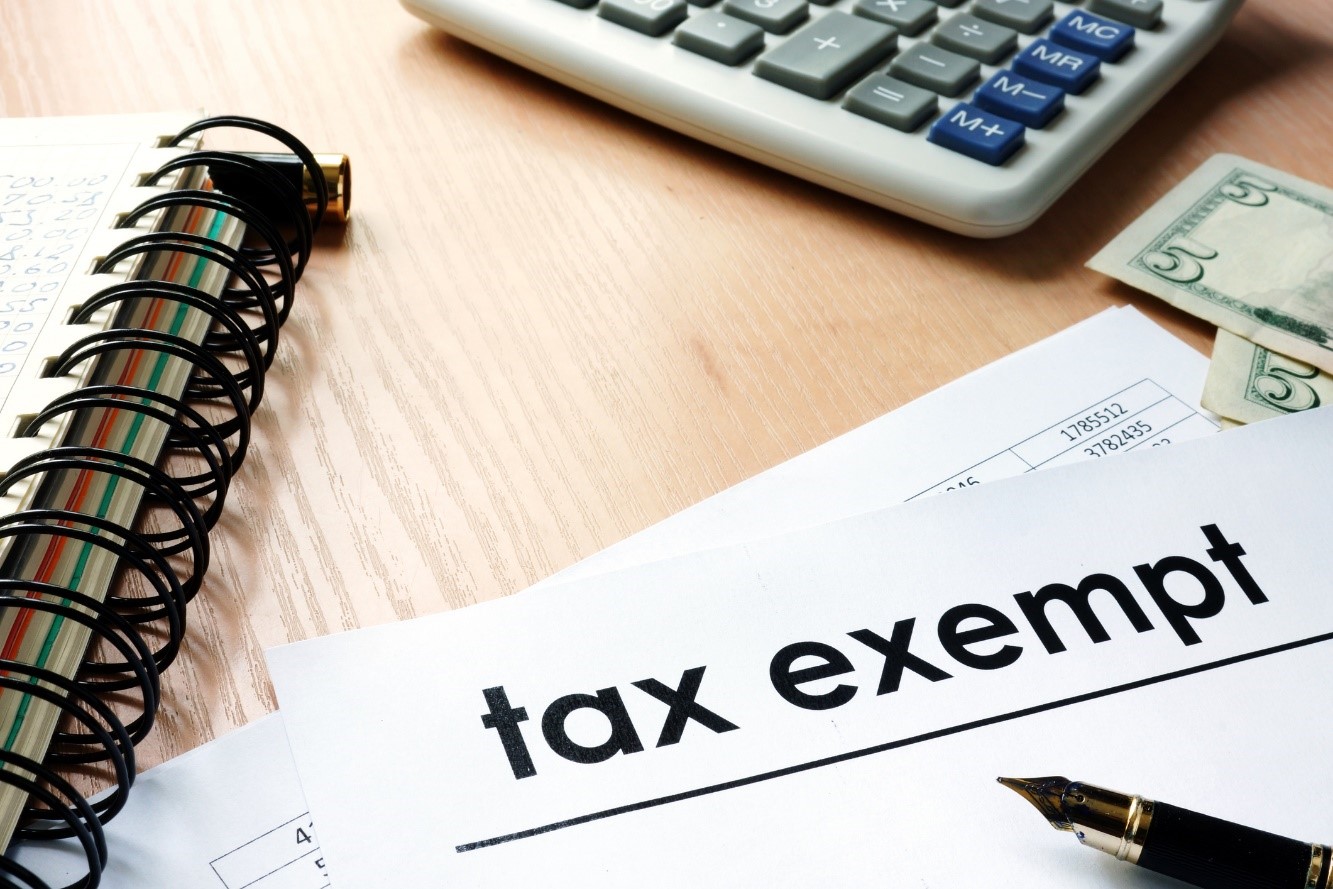
On paper, reselling seems like the perfect plan. You, an enterprising eCommerce business owner, need an inventory for your store. You purchase a large number of goods from a supplier in bulk, taking advantage of the included discount. Then, you mark up the price and resell the products at a profit. This business model is bulletproof … or is it?
As with so many aspects of running your own business, it’s hardly as simple as you may believe on the outset. With that said, it is a viable approach. All you need is the right knowledge and, in many cases, a resale certificate. We will show you everything you need to know about resale certificates in this exclusive, beginner-friendly deep dive.
The Reseller’s Dilemma
We’ll explain the exact nature of a resale certificate soon enough. With that said, we think it would only be fair to first explain the potential issue with this seemingly “bulletproof” business plan we outlined earlier.
Many people choose to start an online business because eCommerce presents fewer barriers to entry, including financial ones. Many would-be entrepreneurs who otherwise could not afford to create and operate a business venture now live out their dreams on the internet. After all, why pay rent on brick-and-mortar locations when you can pay much less for a domain and software?
One great example of this relative inexpensiveness is having a variety of alternative approaches to building up an inventory. Reselling goods is perhaps the most obvious approach. They come readymade, which is great for those who lack the resources to manufacture their own wares. Suppliers typically offer their products at bulk prices, which allows businesses to acquire more stock for less.
The catch is that depending on where one is doing business, bulk purchases require the payment of sales tax. Resellers must mark up to pay off not only the initial purchase, but that additional fee as well. The higher charges that emerge from this necessary practice may intimidate would-be buyers. In a final mocking twist, customers who push through face one more barrier: sales tax.
In light of these realities, the “perfect plan” seems far from bulletproof. Potential purchases may become abandoned carts as would-be customers balk at the mark-ups. In this situation, many seek out competitors offering lower prices on the same goods, or even the suppliers themselves if they’re open to B2C transactions. Fortunately, resale certificates allow you to have your cake and eat it, too.
What is a Resale Certificate?
Resale certificates are documents that give a business permission to skip the sales tax when purchasing products. The catch is that they only apply if the business plans to resell said products. You can’t use the products yourself. You can only acquire them so that other people can use them, after buying them from you. What does not change is that someone has to pay a sales tax — in this case, your customers.
Perhaps more than anything, resale certificates serve as evidence. After all, businesses must send reports of their sales to their home state’s Department of Revenue or another authority. Transactions without sales tax charges would look quite suspicious, and you may receive inquiries about it. If you present an official and valid certificate, you can prove that your purchase is legitimate. Naturally, you’ll also need to prove that you did not use the products, but resold them as promised.
Resale certificates are also important to the suppliers themselves for this same reason. They must also submit the transactions that their customers make with them. By extension, they must prove that they waived the sales tax because their customers had permission. Otherwise, they may land in legal trouble. Think of it like ID for consuming alcohol. You may be penalized if caught drinking without it, and the establishment may be penalized for serving such beverages without checking for it.
One last note: people and authoritative bodies sometimes use several names for resale certificates. Examples include tax exemption certificates, reseller’s licenses, and reseller’s permits. Keep this in mind as you apply for one.
Are Online Businesses Required to Have a Resale Certificate?

Every checklist for starting a business, online or otherwise, will include obtaining certain documentation. You can often divide such documents into two categories. One includes those that federal and state laws require every entrepreneur and retailer to have, regardless of what products and services they provide. Two examples are the registration of business plans and “doing business names.”
Resale certificates don’t fall into that category. Instead, they fall into the second category of business documents: the ones that give a business permission to do something. Another example would be a liquor license, which allows an establishment to legally serve alcoholic drinks. You can run a thriving online business and not necessarily need to obtain one.
The question then is how to proceed without a resale certificate. One way is to make your own goods, rather than relying on wholesalers and suppliers. The challenge with that approach is being able to pump out products at a pace that meets your clientele’s demand. As we wrote before, not every eCommerce entrepreneur has access to the capital and resources required for mass production.
Another way to proceed is by taking the hit, paying sales tax on product purchases, and marking up the costs to customers. The choice is viable, but it may not be wise compared to the alternative. As we wrote earlier, the additional expense on your end would likely result in higher prices that turn off more potential customers. The profits would likely fall short of what you could get if you get the sales tax waived.
Resale certificates aren’t a requirement for running an online business. If your business model is based on reselling, though, then they may be the more practical and profitable option.
How to Get a Resale Certificate
The rules for obtaining a resale certificate may vary depending on which state your business is based in. We’ll explain some of the more common aspects here, but we urge you to do your own research as well.
When you acquire a resale certificate, your customers will pay sales tax on the products in your stead. In most states, however, you can’t collect sales tax without a separate document called the sales tax certificate — or permit, or license, or number. Without this document, having a resale certificate might be useless. In fact, your state government might not even let you apply for a resale certificate unless you have the sales tax certificate.
Once you go through the hoops to get the latter, they may provide the former on request. Pay the required fees, send the required documents about your business, and fill out the forms. You’ll likely be asked for your company’s name and address, your own name and contact information, and other basic details. A signature may also be required.
As thrilling as obtaining your first resale certificate may feel, this process is rarely a one-and-done deal. Though the exact amount of time may vary, you can expect yours to last between one and five years before expiring. The state may automatically send you a valid replacement, but you may need to go through this process all over again.
Complicating matters further is that some state governments don’t recognize resale certificates from other states. If you do business outside your home state, you may need to go through the process multiple times within a single year. This is all the more reason to do your own research before trying to use these documents.
How to Use a Resale Certificate to Buy & Sell

Using a resale certificate should be as simple as presenting a copy of your document to the supplier of your choice. Note that we say “copy” — you don’t need to bring the original. The document should serve as sufficient proof that you run a legitimate business and have a legitimate reason for not paying sales tax.
Each time you plan to submit a copy to a supplier, you may need to fill out certain details related to the transaction. You’ll write down exactly what products you intend to resell, along with the seller’s name and address. This information is in addition to the basic details we noted earlier, such as company name, company address, your name, and so forth.
Just about every resale certificate form includes a space where you provide the reason for the exemption. You have your reason: you intend to resell the product and collect the sales tax down the line. When you write it, though, you must stick to your promise. If you purchase anything and use it without or before reselling it, you’ll have to pay the tax.
One convenient aspect of resale certificates is that they’re almost always conferred in “blanket” form. This status gives the recipient permission to use them for all the items on all the applicable purchases they make. Most suppliers will even store the information in their system, allowing you to only present them once. Obviously, you should update this information for each renewal.
Everything Else You Need to Know
Not every supplier you meet will know whether or not their state law allows them to accept out-of-state resale certificates. In many of these cases, they’ll take the “better safe than sorry” approach and insist that you present an in-state certificate. Don’t view them so harshly — they’re just trying to avoid penalties and legal repercussions.
It’s best to be patient and be prepared for such situations. Before making any transactions with suppliers from another state, look up their local laws and keep them handy. If they’re hesitant, show them the applicable statutes. This simple act should be enough to relieve their concerns and move the sale along.
Moving on, you should also know that readymade products are not the only ones that can qualify for a sales tax exemption. You can use your resale certificate to waive the fee when buying components and parts that you’ll use for making your own products. Naturally, you can’t use the resulting creations yourself. To get the exemption, you must sell them.
One final note is that no matter what, someone must still pay for the sales tax and the state must still receive the money. If you skip out on paying the fee, you become responsible for collecting it from your customers. On top of that, you also become responsible for reporting it to the state and sending the money. Keep this in mind and everything will proceed smoothly.
Conclusion
There is no “perfect plan” to eCommerce. There are only different approaches to it, each with their own advantages and disadvantages. When you start an online store, you must choose how you want to run your business. Then, you’ll have to make the most out of it, minimizing the drawbacks and optimizing the benefits.
Resale certificates can provide a significant boon to those whose livelihoods depend on buying other people’s products and reselling at a mark-up. They can save a great deal of money and prevent a great deal of hassle. The only catches are a little extra work and a legally binding promise that really shouldn’t be hard to keep.
As we wrote earlier, the laws and regulations may vary widely as you cross state lines. This extensive guide should only be one resource you peruse when seeking information on resale certificates. With that said, we hope this article at least offers a great starting point as you strive to gain the right knowledge.





Leave a reply or comment below